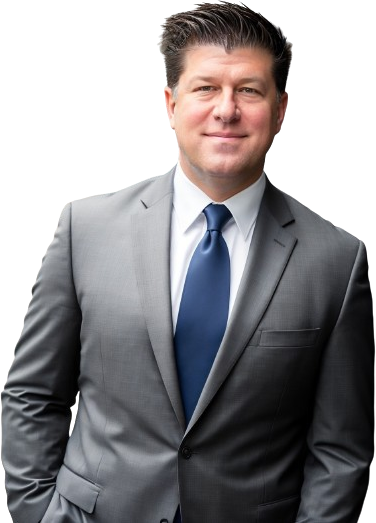
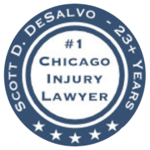

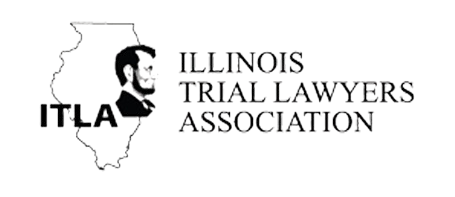
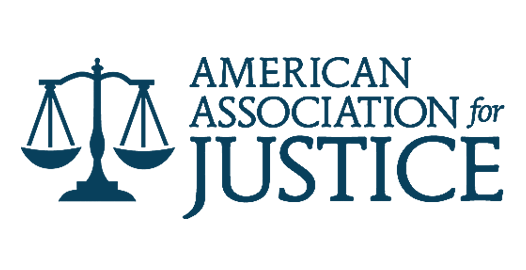
Last summer, I got a call from a woman who had been celebrating her 40th birthday at a popular steakhouse in River North. She was heading back from the restroom when she slipped on water that had been pooling near the kitchen entrance. There was no warning sign. No caution cone. Nothing.
She shattered her wrist in three places and tore ligaments in her shoulder. What should have been a special evening with friends turned into emergency surgery, months of physical therapy, and medical bills that just kept piling up.
The worst part? When I investigated the case, restaurant staff admitted they'd known about the leaking ice machine for two weeks. They just "hadn't gotten around to fixing it yet."
That case reminded me why I became a fall at restaurant lawyer in Chicago. Because when restaurant owners cut corners on safety to save a few bucks, real people get seriously hurt. And somebody needs to hold them accountable.
If you've been injured in a fall at a Chicago restaurant, you're dealing with more than just physical pain right now. You're probably embarrassed about what happened. You're facing medical bills you weren't expecting. Maybe you can't work. And on top of all that, the restaurant's insurance company is probably already calling you, trying to get you to accept a quick settlement before you talk to a lawyer.
I'm here to tell you: don't do it.
Whether you slipped on a wet floor at a downtown steakhouse, tripped over debris at a neighborhood café in Wicker Park, or fell because of poor lighting at a Gold Coast bistro, Illinois law gives you rights. You have the right to hold negligent restaurant owners accountable for what happened to you.
I've been handling these restaurant fall cases all over Chicago for years. Lincoln Park. Hyde Park. The Loop. River North. Pilsen. Logan Square. Every neighborhood has restaurants, and every restaurant has owners who sometimes prioritize profits over keeping people safe.
Here's my promise to you, and I mean this: you don't pay a penny out of pocket. You don't pay me unless we win. And you can call me any time—literally any time, day or night, weekends, holidays, middle of the night—I don't care. If you need to talk, I'm here.
Let me walk you through what you need to know about restaurant fall cases in Chicago. No legal jargon. No BS. Just straight talk about your rights and how to protect them.

Here's something most people don't realize: restaurant fall cases are actually more complicated than a lot of other slip and fall accidents.
Why?
Because restaurants create unique hazards. You've got food and drinks being carried around constantly. You've got spills happening all the time. You've got staff rushing back and forth between the kitchen and dining room. You've got grease from cooking that gets tracked onto floors. You've got condensation from soda machines and ice makers.
And all of this is happening in an environment where people are focused on their meal, their conversation, finding their table, or looking at a menu—not scanning the floor for hazards.
Chicago has thousands of restaurants. Fast food places. Casual dining. Fine dining establishments in River North and the Gold Coast. Neighborhood spots in every part of the city. Each type of restaurant has its own challenges when it comes to keeping floors safe.
Fast-food restaurants see constant spills with minimal staff to clean them up. Full-service restaurants have server stations where liquids accumulate. Bars and nightclubs deal with wet floors from condensation and spills in dimly lit environments.
But here's the thing: no matter what type of restaurant it is, the owner has a legal duty under Illinois law to maintain safe premises for customers. When they fail to do that, they need to be held responsible.
Over the years, I've seen just about every type of restaurant accident you can imagine. Let me walk you through the most common ones.
This is the big one. Wet floors cause more restaurant falls than anything else.
And it happens in so many ways:
During Chicago winters, melted snow creates puddles in entryways. Restaurant staff should be constantly monitoring floor conditions, cleaning spills immediately, and putting up warning signs when they mop.
But a lot of times, they don't. They're busy. They're understaffed. They figure "we'll get to it in a minute." And that's when someone like you walks through and ends up on the ground.
A lot of Chicago restaurants pride themselves on "ambiance." Dim lighting. Romantic atmosphere. Very Instagram-worthy.
But here's the problem: when lighting is too dim, you can't see hazards on the floor.
I've handled cases involving:
Restaurant owners have to balance creating atmosphere with keeping people safe. When they go too far with the mood lighting and someone gets hurt, that's negligence.
Restaurants are busy places. And in that chaos, stuff ends up on the floor that shouldn't be there.
Fallen napkins. Dropped utensils. Food debris. Electrical cords for music or equipment. Uneven floor mats that bunch up. Children's items like high chairs blocking walkways. Server trays sitting on the floor. Boxes and supplies left in walkways.
Staff needs to keep pathways clear at all times. When they don't, people trip and fall.
Chicago has a lot of older restaurant buildings with character. That "character" sometimes includes dangerous floor conditions.
Uneven floors. Unexpected steps between sections. Transitions between different flooring materials. Raised platforms for private dining areas. Worn or damaged tile or wood floors.
These architectural features require proper warning signs and adequate lighting. When restaurants don't provide them, accidents happen.
Regular maintenance prevents a lot of falls. But some restaurant owners don't want to spend the money.
So you get:
When I investigate these cases and find out the restaurant knew about the problem for weeks or months but didn't fix it, that makes me angry. They're gambling with people's safety.
Let me explain this in plain English.
When you walk into a restaurant as a paying customer, Illinois premises liability law classifies you as an "invitee." That's a legal term that means you're owed the highest duty of care.
What does that mean practically?
It means restaurant owners must:
If they fail to do any of these things and you get hurt, they're liable.
To win your case, I need to prove four things:
One: The restaurant owner knew or should have known about the hazardous condition. Maybe someone spilled a drink and staff saw it. Maybe the ice machine had been leaking for days. Maybe another customer complained about slippery floors. Whatever it is, I need to show they had knowledge.
Two: The condition posed an unreasonable risk of harm. A little bit of water near a sink might not be unreasonable. But a large puddle in the middle of a walkway with no warning sign? That's unreasonable.
Three: The restaurant failed to take appropriate action. They didn't clean it up. They didn't put out a warning sign. They didn't fix the underlying problem. They did nothing.
Four: Their failure directly caused your injuries. There's a clear connection between their negligence and you ending up on the ground with broken bones or torn ligaments.
As your Chicago fall at restaurant lawyer, I gather the evidence necessary to prove each of these elements and build a case that maximizes your compensation.
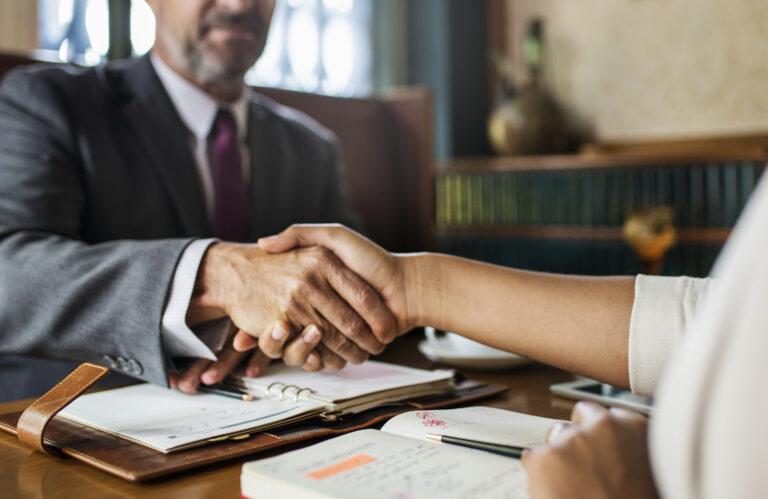
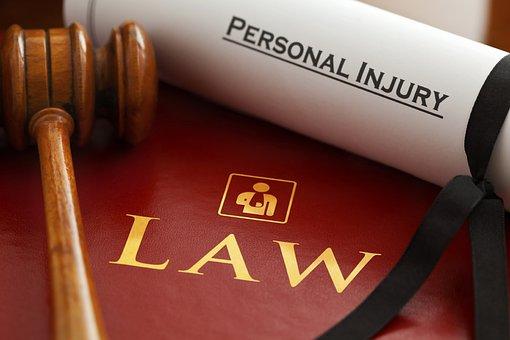

Let me be straight with you: restaurant falls cause serious injuries.
When people fall in restaurants, they're usually caught completely off-guard. They're thinking about their meal, talking to friends, looking at their phone, finding their table. They're not expecting to suddenly be on the ground.
That element of surprise often makes the injuries worse because people don't have time to brace themselves or try to break their fall.
This is probably the most common injury I see.
When you fall, your natural instinct is to try to catch yourself. That's when wrists and arms break. Or if you land on your side, you break a hip. If you fall backward, you can fracture your spine or crack your skull on the hard restaurant floor.
Hip fractures are especially serious for older victims. They often require surgery, extensive rehabilitation, and sometimes people never regain their full mobility. I've had clients in their 60s and 70s who went from being completely independent to needing assistance with daily activities because of a restaurant fall.
Wrist fractures often require surgery with pins and screws, followed by months of physical therapy. Ankle fractures can affect your ability to walk normally for the rest of your life.
These aren't "minor" injuries that heal in a few weeks. They're life-changing.
When you slip and fall in a restaurant, you often hit your head. Sometimes on the hard tile or concrete floor. Sometimes on the edge of a table. Sometimes on a bar counter or chair.
Even what seems like a minor head bump can cause a concussion. More serious impacts can cause skull fractures, brain bleeding, or permanent brain damage.
I've had clients who seemed fine right after the fall but started having symptoms days or weeks later—headaches, dizziness, memory problems, personality changes, difficulty concentrating. Those are signs of traumatic brain injury.
Head injuries are nothing to mess around with. Even if you feel okay after a restaurant fall, you need to see a doctor immediately.
The sudden impact of falling can cause serious damage to your back and spine.
Herniated discs. Spinal fractures. Nerve damage. Chronic pain conditions. In severe cases, paralysis.
Chronic back pain affects everything you do. Sitting. Standing. Walking. Sleeping. Everything. You can't get comfortable. You can't do the activities you used to enjoy. Simple tasks become difficult.
And here's the frustrating part: back injuries often don't heal completely. You might need ongoing treatment—physical therapy, pain management, injections, even surgery. And even with all that treatment, you might never feel the way you did before the accident.
Insurance companies love to minimize back injuries. They'll say "everyone has back pain" or "that's just part of getting older."
That's garbage. And I don't let them get away with it.
When you fall, you often land on a shoulder or knee. Or you throw your arm out trying to catch yourself and tear your rotator cuff.
These soft tissue injuries hurt. A lot. And they take months to heal, often requiring surgery.
Torn rotator cuffs. Torn ACLs. Torn meniscus. Damaged cartilage. Torn ligaments and tendons.
I've had clients who needed multiple surgeries and a year or more of physical therapy. Some never regain full range of motion in the affected joint.
Don't let anyone tell you soft tissue injuries aren't serious. They absolutely are.
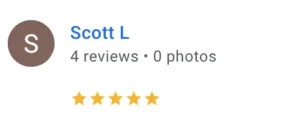
Every case is different, but Illinois law allows you to recover both economic and non-economic damages.
My goal in every case is getting you every dollar you deserve—not just for your current bills, but for the long-term impact this injury will have on your life.
Medical Expenses:
Every penny you've spent or will spend on medical care related to your fall.
Emergency room treatment. Ambulance ride. Surgery. Hospital stays. Doctor appointments. Specialists. Diagnostic tests like X-rays, MRIs, CT scans. Physical therapy. Medications. Medical equipment like crutches or walkers. Future medical care you'll need.
I've had restaurant fall clients whose medical bills reached $100,000 or more after serious injuries. And insurance companies try to claim some treatments "weren't necessary."
Your doctors decide what's necessary, not insurance adjusters.
Lost Wages:
If your injuries kept you from working, you deserve compensation for every dollar you lost.
Lost salary. Lost bonuses. Lost overtime. Lost benefits like health insurance contributions. If you're self-employed, lost income from your business.
I work with your employer to document exactly what you've lost. For self-employed clients, I use tax returns, bank records, and client contracts to prove lost earnings.
Future Lost Earning Capacity:
Serious injuries might mean you can't go back to your old job. Or maybe you can work but not at the same level you did before. Maybe you had to take a lower-paying job because of your physical limitations.
You deserve compensation for that reduced earning capacity. Economists can calculate what that's worth in today's dollars—sometimes hundreds of thousands of dollars or more.
Out-of-Pocket Expenses:
Any other costs related to your injury. Home modifications if you're disabled. Transportation to medical appointments. Help with household tasks you can't do anymore. Child care you needed because you couldn't take care of your kids.
All of it counts. All of it adds up. And all of it should be compensated.
Pain and Suffering:
The physical pain you've endured since the accident and will continue experiencing. Illinois has no cap on pain and suffering damages in restaurant fall cases.
This isn't just about the immediate injury. It's about chronic pain that affects your daily life. The frustration of not being able to do things you used to do easily. Living with discomfort every single day.
Emotional Distress:
Anxiety. Depression. PTSD. Fear of falling again.
Many restaurant fall victims experience lasting psychological effects. Some develop a fear of going to restaurants. Some experience anxiety in public places. Some deal with depression because of lifestyle changes forced by their injuries.
That's real. That deserves compensation.
Loss of Enjoyment of Life:
Not being able to do activities you love.
Can't play sports anymore. Can't garden. Can't travel the way you used to. Can't play with your kids or grandkids the way you want to. Can't participate in hobbies that brought you joy.
Money can't bring those things back. But compensation at least acknowledges what you've lost and helps you find new ways to experience enjoyment in life.
Disfigurement and Scarring:
Permanent scars affect how you feel about yourself. Especially visible scars on your face, arms, or legs.
I've represented clients with permanent scarring who struggle with self-esteem, avoid social situations, and deal with stares and questions from strangers. That impacts your confidence, your relationships, your entire life.
That deserves compensation.
Sometimes restaurant owners act so recklessly that compensatory damages aren't enough.
That's when we go after punitive damages.
Punitive damages are designed to punish wrongdoers and send a message: you can't treat people's safety like it doesn't matter.
I pursue punitive damages when restaurant owners:
When juries award punitive damages, restaurant owners pay attention. And hopefully, they change their behavior so nobody else gets hurt.
Find Out What YOUR Case Might Be Worth...for free.
Let me be blunt: restaurant owners and their insurance companies will use every trick they know to avoid paying what you deserve.
I've handled hundreds of these cases. I've seen every defense strategy. I know their playbook.
Here's what to expect:
This is their go-to strategy. They'll claim:
It's victim-blaming at its finest. And it makes me angry every time I hear it.
Here's the truth: even if a hazard is somewhat visible, that doesn't always get property owners off the hook under Illinois law.
And even if you were partially at fault, you can still recover damages as long as you were less than 51% responsible.
Illinois uses something called "modified comparative negligence." If you were 30% at fault and the restaurant was 70% at fault, you still recover 70% of your damages.
So if your total damages are $100,000, you'd get $70,000.
Don't let insurance companies bully you into thinking this was all your fault. That's exactly what they want you to believe so you'll give up or accept a lowball settlement.
Restaurant owners love to claim they had no idea there was a problem.
"We didn't know the floor was wet." "We didn't know about that spill." "We didn't know the mat was bunched up."
But Illinois law says they're liable for hazards they should have known about through reasonable inspection and monitoring. That's called "constructive notice."
When I investigate these cases and dig into surveillance footage, talk to staff, and review incident logs, I usually find that the hazard existed long enough that any reasonable restaurant owner would have discovered it.
Or I find out that staff actually did know about it but were too busy to deal with it right away.
Either way, the restaurant is liable.
Sometimes restaurants admit knowing about a hazard but claim they didn't have enough time to address it.
"The spill just happened a minute before the customer fell." "We were about to clean it up." "We were short-staffed that day."
This defense rarely works when I can prove:
If you know about a dangerous condition and don't fix it OR at least warn people about it, you're liable. Period.
Insurance companies hire doctors to dig through your medical records looking for any prior injury to the same body part.
Then they claim "see, this person already had back problems [or knee problems or shoulder problems], so our client's restaurant didn't cause their current pain."
I counter this with medical experts who explain:
Illinois law says property owners must "take victims as they find them." That means if you had a prior back injury and their negligence made it worse, they're liable for making it worse.
You don't need perfect health to have a valid claim.
Insurance companies hire private investigators to follow you around, hoping to catch video of you doing something that looks inconsistent with your claimed injuries.
They also stalk your social media looking for photos of you smiling, traveling, or doing any activities they can twist to suggest you're not really injured.
Here's what you need to know: being injured doesn't mean you never smile or leave your house.
A photo of you at a family gathering doesn't prove you're not in pain. A five-second video of you bending over to pick something up doesn't prove your back injury isn't real.
Insurance companies take things wildly out of context. They freeze-frame the one second where you look fine and ignore the other 23 hours and 59 minutes of your day where you're struggling.
I build objective medical evidence—diagnostic imaging, expert opinions, treating physician testimony—that proves your injuries regardless of what some investigator captured on video.
This is one of their favorite tactics.
You're injured. You're dealing with medical bills. Maybe you can't work. You're stressed about money.
Then the restaurant's insurance adjuster calls with an offer: "We'll give you $5,000 to settle this right now. Just sign this release and we'll send you a check."
$5,000 sounds good when you've got bills piling up, right?
But that offer won't cover your medical expenses, let alone your lost wages, future medical care, pain and suffering, and everything else you're entitled to.
And once you accept that settlement and sign the release, you can never get more money. Even if your injuries turn out to be worse than you thought. Even if complications develop. Even if you need surgery down the road.
You get one shot at compensation. Don't waste it by accepting the first lowball offer.
Never—and I mean NEVER—accept a settlement without having a lawyer review it first.
Illinois law gives you two years from the date of your restaurant fall to file a personal injury lawsuit.
Two years might seem like a long time, but it's not.
Here's why: evidence disappears fast. Really fast.
Restaurants erase security footage after 30 to 90 days. Witnesses move away or forget what they saw. Staff members who were working that day quit and are hard to track down. The restaurant fixes the hazard that caused your fall, destroying evidence of the dangerous condition.
Building a strong case takes time. I need to investigate while the evidence still exists and memories are fresh.
There are some exceptions to the two-year deadline:
For Minors: If the injured person is under 18, the clock doesn't start until they turn 18. So they have until age 20 to file a lawsuit.
For Government Property: If your fall happened at a restaurant on government property (like a restaurant in a park or government building), different and usually SHORTER deadlines apply.
Discovery Rule: In rare cases where injuries weren't immediately apparent, the deadline might start when you discovered or should have discovered your injury. But this exception is narrow and you shouldn't count on it.
Here's what you absolutely must understand: if you miss the statute of limitations deadline, you lose your right to compensation forever.
It doesn't matter how strong your case is. Doesn't matter how badly you were hurt. Doesn't matter if the restaurant owner admits fault. If you file even one day late, the court dismisses your case without even looking at it.
Don't wait. Don't procrastinate. Don't assume you have plenty of time.
Call me now.
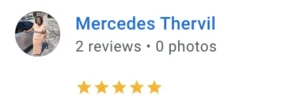
Look, I'm not going to give you some slick sales pitch. That's not who I am.
But I want you to understand what makes my practice different from other Chicago injury firms.
When I was nine years old, my father was catastrophically injured at work. He was a truck driver, a Teamster, and the toughest guy I knew.
That injury changed everything for our family.
His case took 17 years to resolve. Seventeen years of being run around by insurance companies, defense lawyers, and even his own attorney. And at the end of those 17 years, his own lawyer sued him for more fees.
We grew up poor after my father couldn't work anymore. I watched my family struggle. I watched the legal system fail us.
That's why I became a personal injury lawyer. To make sure what happened to my father never happens to anyone else.
I know what it's like to be the family member of someone who's been hurt. The fear. The uncertainty. The financial stress. The frustration with insurance companies that don't care and lawyers who are more interested in their fees than your wellbeing.
That experience shaped who I am as a lawyer. It's why I treat every client like family. It's why I return phone calls promptly. It's why I explain things in plain English instead of hiding behind legal jargon. It's why I fight so hard.
Your fight is my fight. That's not just a slogan I put on my website. It's the truth.
Most lawyers do the bare minimum for continuing education. They show up to a seminar once a year, sit in the back, check the box, and go home.
Not me.
I've spent over $100,000 and thousands of hours on advanced training that most lawyers never even consider.
I'm a graduate of the world-renowned Gerry Spence Trial Lawyer's College. I'm a graduate of the prestigious "The Edge" program. Not one in 10,000 lawyers has completed the training I have.
Why did I invest all that time and money?
For one reason: so you get the very best, most cutting-edge and effective representation possible.
When I'm in a negotiation or courtroom, insurance companies and defense lawyers know I've trained with the best trial lawyers in the country. They know I'm not bluffing when I say I'll take a case to trial. They know I have the skills to win.
That knowledge makes them more likely to offer fair settlements. And when they don't, I'm fully prepared to take your case to trial and win.
Big personal injury firms handle hundreds or thousands of cases at once. When you call, you'll deal with paralegals, case managers, junior associates—everyone except the actual lawyer whose face is on the billboard.
I do things differently.
When you call my office, you talk to me. When you have questions, I answer them. I personally handle your case from start to finish.
I limit my caseload so every client gets real, personal attention. You'll have my cell phone number. I'll return your calls promptly. You'll never wonder what's happening with your case because I'll keep you informed every step of the way.
Some people want the big firm with the fancy TV commercials. That's fine. Those firms do good work.
But if you want a lawyer who actually knows your name, remembers the details of your case, and genuinely gives a damn about what happens to you, call me.
Some lawyers settle cases cheap and fast because they want to move on to the next one. It's a volume business for them.
That's not me.
I don't settle for less than your case is worth. When insurance companies make unreasonable offers, I'm fully prepared to take cases to trial.
My willingness to actually try cases gets us better settlements because insurance companies know I'm serious. They've seen me in court. They know I'm not afraid of trial.
Property owners and their insurers respect lawyers who actually try cases. When they know you've hired an attorney who will go to trial if necessary, they take negotiations more seriously and make better offers.
Let me be super clear about this because I want you to understand there's absolutely no financial risk in hiring me.
You pay nothing upfront. No retainer. No hourly fees. Nothing out of pocket.
I work on contingency. That means I only get paid if we win your case through settlement or verdict.
I even advance all case expenses. Filing fees. Expert witness costs. Investigation expenses. Medical record retrieval fees. Court costs. Deposition expenses. Everything it takes to build and prove your case.
If we don't recover money for you, you owe me nothing. Not a penny. Not for my time, not for the expenses I advanced, nothing.
This arrangement ensures everyone can afford experienced representation regardless of their financial situation. You shouldn't have to choose between getting a good lawyer and paying your bills.
In personal injury cases, my fee is 33⅓% if we settle before trial, or 40% if we have to go to court. These are standard rates. Workers' compensation cases have state-set fees of 20%.
Pretty good deal, right? (Yes, that's my sense of humor creeping in.)
Restaurant accidents often happen during evenings, weekends, and holidays when people are dining out.
You might fall on a Saturday night. You might be injured on a Sunday brunch. Your accident might happen on New Year's Eve.
That's why you can call me any time—24 hours a day, 7 days a week, 365 days a year.
Middle of the night? Weekend? Holiday? Doesn't matter. If you need to talk, I'm here.
Quick response matters because evidence disappears fast. Security footage gets erased. Witnesses forget details. Restaurants clean up or repair the hazard.
The sooner I get involved, the better positioned we are to protect your rights and build a strong case.
I'm not just a lawyer who works in Chicago. I'm part of this community.
I've supported local organizations throughout the city. I've sponsored youth sports teams. I've participated in safety initiatives to make our communities safer.
When I win restaurant fall cases, I'm making Chicago safer for everyone. Every case sends a message to negligent restaurant owners that cutting corners on safety has real consequences.
This isn't just business for me. It's personal. It's about making sure what happened to my father—and what happened to you—doesn't keep happening to other people.
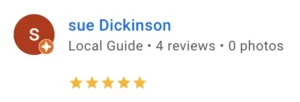
The actions you take immediately after a restaurant fall make a huge difference in your ability to recover compensation.
Your health is the top priority. Always.
Even if you think you're fine, see a doctor. Some serious injuries—head trauma, internal bleeding, spinal damage—don't show symptoms right away.
For severe injuries, call 911 or have someone take you to the emergency room. For less serious injuries, see your doctor within 24 hours.
Beyond your health, this matters legally too. Insurance companies will claim "if they were really hurt, they would've gone to the hospital immediately."
Don't give them that argument. Get checked out right away.
Tell the restaurant manager immediately. Insist they create an incident report. Ask for a copy.
This creates an official record of what happened before the restaurant can claim ignorance or change their story later.
Get:
If they refuse to document it, write down who you spoke to, what time it was, and what they said. Pull out your phone and make notes right there if you need to.
If you're physically able, photograph everything immediately. If you can't because you're too injured, ask someone with you to do it. Or have a family member go back to the restaurant as soon as possible.
Photograph:
Property owners fix hazards quickly after accidents. The evidence you capture right away might be the only evidence that exists later.
I can't tell you how many times insurance companies have claimed "the hazard wasn't that bad" only to have photos prove otherwise.
Get names and contact information from anyone who saw what happened.
Other diners. Restaurant staff. Friends or family who were with you. Anyone.
Ask them:
Don't rely on the restaurant to collect witness information. They'll conveniently "forget" to get contact details from witnesses who support your version of events.
Save the clothes and shoes you were wearing. Don't wash them. Don't throw them away.
I've had cases where torn clothing or damaged shoes helped prove exactly how an accident happened and how severe the impact was.
Also save:
The restaurant's insurance company will call you. Usually within a day or two.
They'll be friendly. They'll sound concerned. They'll say they just want to "get your side of the story" and that they need a recorded statement to "process your claim."
Politely decline.
Say: "I'd prefer to provide a statement after I've talked to my attorney."
They're not trying to help you. They're building their defense by getting you to say something they can twist against you later.
Insurance adjusters are trained to ask questions in ways that hurt your case—even when you're telling the truth. They'll ask things like:
"So you didn't see the water on the floor?" (They'll use that to claim it was open and obvious)
"Were you looking at your phone?" (They'll use that to blame you)
"You've had back pain before, right?" (They'll use that to deny your injury was caused by the fall)
It's your legal right to decline giving a statement. They can't hold it against you. Don't let them pressure you or make you feel like you're being difficult.
The restaurant's insurance company may ask you to sign documents. Medical releases. Settlement agreements. Authorization forms.
Don't sign anything without having me review it first.
These documents often contain language that gives away your rights or hurts your case. Medical releases can be so broad they give insurance companies access to your entire medical history going back years—not just records related to this accident.
They're looking for anything they can use to minimize or deny your claim.
Just say "I'd like my attorney to look at this first."
They'll push back. They'll say it's "standard" or "required" or "we need this to process your claim."
It's not required. Don't sign.
The sooner you hire me, the better I can protect you.
When you call right away, I immediately:
Don't wait weeks or months. Evidence vanishes. Witnesses move away or forget. Security footage gets erased. Restaurants repair hazards and destroy evidence.
Call me today. The consultation is free. There's no obligation. And you'll know exactly where you stand.
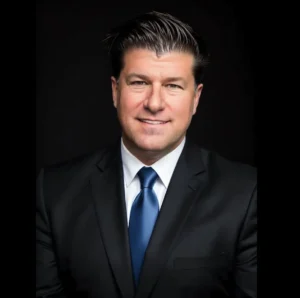
Let me answer the most common questions I get about restaurant fall cases.
Illinois has something called "modified comparative negligence."
In plain English: you can still recover compensation if you were partially at fault, as long as you were less than 51% responsible.
Your damages just get reduced by your percentage of fault.
Example: Your total damages are $100,000. If a jury determines you were 30% at fault and the restaurant was 70% at fault, you'd recover $70,000.
But if you were 51% or more at fault, you can't recover anything under Illinois law.
Don't assume you were at fault just because the insurance company says so. They always blame the victim. That's their job.
My job is proving the restaurant's negligence was the main cause of your accident.
It depends on several things:
Simple cases with clear liability might settle in a few months. Complex cases with serious injuries or disputed fault can take a year or more.
Here's my philosophy: I work efficiently, but I never rush just to close files quickly. Your case deserves whatever time it takes to maximize your recovery.
I'd rather spend extra months building a stronger case and getting you significantly more money than settling fast and leaving money on the table.
Every case is different. The value depends on:
I can give you a general estimate after reviewing your case, but honestly, we won't know the full value until we understand the complete extent of your injuries and finish our investigation.
Be suspicious of any lawyer who gives you a specific number in the first conversation. They're either guessing or telling you what you want to hear to get you to sign up.
I'll give you a realistic assessment based on my experience with similar cases. But I won't make promises I can't keep.
Most Chicago restaurants carry liability insurance. They're required to by law in many cases, and landlords often require it.
But if they don't have insurance, other options might exist:
I investigate all possible sources of recovery. Sometimes restaurants claim they don't have insurance when they actually do. Or we discover other liable parties who have coverage.
Don't give up just because someone says there's no insurance. Let me investigate first.
Absolutely. And chain restaurants often have substantial insurance coverage and corporate resources.
Whether it's McDonald's, Subway, Applebee's, or any other chain—if their negligence caused your fall, they can be held liable.
Chain restaurants are often franchises, which can affect who exactly we sue. Sometimes it's the individual franchise owner. Sometimes it's the corporate entity. Sometimes both.
I figure out the proper defendants and make sure everyone who should be held responsible is included in the lawsuit.
If you were working at the restaurant when you fell, you're probably covered by Illinois Workers' Compensation.
Workers' Comp provides benefits regardless of fault, but you generally can't sue your employer for additional damages.
However, you might have a "third party" claim against someone other than your employer. For example, if you fell because of defective equipment from another company, or because a contractor created a hazard, you might be able to sue them.
I handle both Workers' Comp and third-party injury cases, so I can evaluate all your options and maximize your total recovery.
Being under the influence doesn't automatically bar you from recovery in Illinois, but it can complicate your case.
If the restaurant or bar over-served you alcohol (violating Illinois Dram Shop laws), that actually strengthens your case in some ways. Restaurants have a duty not to over-serve intoxicated customers.
But if you were significantly intoxicated and that contributed to your fall, it might affect your percentage of fault under comparative negligence rules.
Every situation is different. Call me and let's talk about the specifics of your case. Being honest about alcohol consumption from the start helps me build the best strategy.
Never accept a settlement without having me review it first.
Insurance companies make early offers for one reason: closing your case cheap before you realize what it's actually worth.
These offers rarely account for:
Once you accept and sign a release, you can never get more money. Even if your injuries turn out worse than expected. Even if complications develop that require surgery. Even if you discover you can't return to work.
You get one shot at compensation. Don't waste it.
Let me review any offer. The consultation is free. I'll tell you honestly if it's fair or if we can do much better. Then you can make an informed decision instead of guessing.
You have the right to represent yourself. But consider this:
The restaurant has insurance. That insurance company has teams of lawyers, adjusters, and investigators working to minimize your claim. They know the law. They know the tricks. They do this every day.
You want to go up against them alone?
Studies show injury victims who hire lawyers recover significantly more money—even after paying attorney fees—than those who try to handle claims themselves.
Plus, you're dealing with recovery from your injuries. You're stressed. You're in pain. You're worried about money. Do you really want to spend your time fighting with insurance companies, gathering evidence, and learning premises liability law?
Let me handle the legal fight while you focus on getting better.
The consultation is free. No obligation. At minimum, talk to me so you understand your rights and what your case might be worth. Then you can make an informed decision.
There is one particular injury lawyer I'd like you to call. I'll let you guess who that is. (Yes, that's my sense of humor creeping in.)
Hiring Scott was one of the best moves I have made in my life. Scott is a down to earth person and attorney. Scott is a 5 star first class act who really knows his stuff. The Judge said his presentation was one of if not the best he had ever seen. Take my advice, hire Scott I’m sure you’ll be 200% satisfied I was.

Scott not only cares about the case, but he truly cares about his clients and that makes him the best lawyer I have ever met and hired! He won my case! He is thorough in everything he does. I highly recommend Scott, and will always refer him to family and friends.

I hired Scott DeSalvo upon a friend’s recommendation. His office kept me informed of developments as they happened, and I felt the settlement reached was fair considering my injuries. I would highly recommend Scott DeSalvo to represent your personal injury case.

These accidents can happen at any type of dining establishment. Over the years, I've handled cases at all kinds of restaurants throughout Chicago.
McDonald's, Subway, Jimmy John's, Chipotle, Panera Bread, Starbucks—these places see constant foot traffic and frequent spills with minimal staff to address them quickly.
The combination of rushed service, high volume, and limited cleaning staff creates dangerous conditions.
Applebee's, Chili's, TGI Friday's, Buffalo Wild Wings, Olive Garden—these restaurants have server stations where liquids accumulate, busy kitchens where grease gets tracked out, and high traffic areas.
River North and the Gold Coast have dozens of upscale restaurants where dim lighting creates ambiance but hides hazards. Polished floors look beautiful but become dangerously slick when wet.
Chicago's neighborhoods are full of local favorites. Small family-owned places. Breakfast spots. Corner cafés. These establishments often have older buildings with uneven floors, worn surfaces, and maintenance issues.
Late-night establishments in River North, Wrigleyville, and downtown create unique hazards—spilled drinks, dim lighting, crowded conditions, wet floors from condensation, and intoxicated patrons.

When you hire me, here's what happens:
We talk about what happened. I listen to your story. Really listen. I'm not interrupting, not judging, just listening and asking questions to understand the full picture.
I explain your rights and options in plain English. No legal jargon. No pressure.
You decide if you want to hire me. Your choice.
Either way, we end up as friends. Sound good?
If you hire me, I immediately start investigating.
I visit the restaurant to document conditions before they change. I send legal preservation letters demanding the restaurant preserve all evidence—especially security footage. I interview witnesses while memories are fresh. I obtain surveillance video before it gets erased. I gather maintenance records, inspection reports, incident logs, and any other relevant documents. I consult with experts when necessary.
Time is critical. Evidence disappears fast. I don't waste a minute.
I work with your doctors to thoroughly document your injuries. I make sure your medical records clearly show the extent of your injuries and how they resulted from the fall.
I coordinate with medical experts when necessary to explain complex injuries, establish permanency, or counter defense medical opinions.
I gather and organize all evidence proving the restaurant's liability:
I also document all your damages:
Once I understand the full extent of your injuries and damages, I prepare a detailed demand package for the insurance company.
This package includes all evidence proving liability, complete medical documentation with expert opinions, economic loss calculations, and a demand for full and fair compensation.
This isn't just a letter saying "pay us money." It's a comprehensive presentation of your case that shows the insurance company exactly why they're liable and exactly what you deserve.
I negotiate aggressively with the insurance company. I don't accept lowball offers. I push for full and fair compensation.
Many cases settle at this stage when insurance companies realize we have strong evidence and I'm serious about taking the case to trial if necessary.
But some insurance companies won't be reasonable. They make ridiculous offers hoping you'll get frustrated and accept less than you deserve.
That's when we file a lawsuit.
If the insurance company won't offer fair compensation, I file a lawsuit in Cook County Circuit Court.
Filing a lawsuit shows them we're serious. It often leads to significantly better settlement offers as we get closer to trial.
During the lawsuit, both sides exchange evidence, take depositions (recorded testimony under oath), and build their cases.
This is where thorough preparation really pays off. Insurance companies know I'll find everything they're trying to hide. I depose restaurant managers, staff, and corporate representatives. I obtain documents they don't want to produce. I build a case that's ready for trial.
If we can't reach a fair settlement, I take your case to trial. I present your case to a jury. I argue for every dollar you deserve.
I've tried cases. I've won. And I'm ready to do it again if that's what it takes to get you fair compensation.
But here's the thing: most cases settle before trial when insurance companies realize they're facing a lawyer who's actually prepared to try the case and has the skills to win.
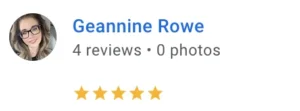
My practice serves clients throughout the Chicago metropolitan area.
All Chicago neighborhoods—Rogers Park, Lincoln Park, Lakeview, Wicker Park, Logan Square, Humboldt Park, West Loop, River North, Streeterville, Gold Coast, Loop, South Loop, Pilsen, Bridgeport, Bronzeville, Hyde Park, Englewood, Beverly, and everywhere in between.
Suburban communities across Cook County, DuPage County, Lake County, and Will County.
Whether your restaurant fall happened downtown, in a neighborhood, or in the suburbs, I'm here to help.
My office is in Chicago—right in the heart of the legal district, across from the courthouse. But I'll meet you wherever is most convenient for you. Your home. A local coffee shop. A restaurant (ironic, I know). Anywhere you feel comfortable.
Find out if you have a good case, or a tough one...for free!
Look, I'm not going to pressure you. I never chase clients. I never hustle and harass people.
We talk like friends.
But if you've been hurt in a fall at a Chicago restaurant, you deserve to know your rights. You deserve to know if you have a case. And you deserve to know what it might be worth.
Here's how it goes when you call:
Step 1: You call (or I can call you at a time that works for you).
Step 2: I listen to your story. Really listen. No interrupting, no judging, just listening.
Step 3: I answer your questions and address your concerns. Plain English, no legal jargon.
Step 4: I'll tell you honestly if I think you have a case and what I can do to help.
Step 5: You decide whether to hire me. Your choice. Zero pressure.
Step 6: Either way, we end up as friends.
Sound good?
You can reach me 24 hours a day, 7 days a week, 365 days a year at (312) 500-4500.
Or if you're not quite ready to talk, visit desalvolaw.com and tell me about your situation. I'll get back to you quickly.
Don't let a restaurant's negligence destroy your financial security and quality of life. Don't let insurance companies push you around and convince you to accept less than you deserve.
You went out to enjoy a meal with friends or family. You shouldn't have ended up injured because someone didn't want to spend five minutes mopping up a spill or fixing a hazard they knew about.
That's not fair. And it's not your fault.
I look forward to hearing from you.
Your fight is my fight. Let's get you the justice and compensation you deserve.
About Scott DeSalvo
When I was nine, my father was catastrophically injured at work. He was a truck driver, a Teamster, and the toughest guy I knew.
That injury changed everything for our family.
His case took 17 years to resolve. At the end, his own lawyer sued him for more fees.
We grew up poor once my father could no longer work. I watched my family struggle. I watched the legal system fail us.
So I worked through high school and put myself through college and law school so that what happened to my family NEVER happens to anyone else.
I've dedicated my career—honestly, my whole life—to helping injured people get the respect and compensation they deserve.
I'm a graduate of the Gerry Spence Trial Lawyer's College and "The Edge" program. I've spent over $100,000 on advanced training most lawyers never consider. Not because I had to, but because I wanted to give my clients the absolute best representation possible.
I only represent injured people—never insurance companies or defense lawyers. I take cases other lawyers turn away. And I fight like hell for every client.
Because your fight is my fight.
Call me at (312) 500-4500 any time, day or night. Let's talk about your case.
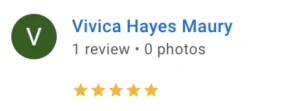
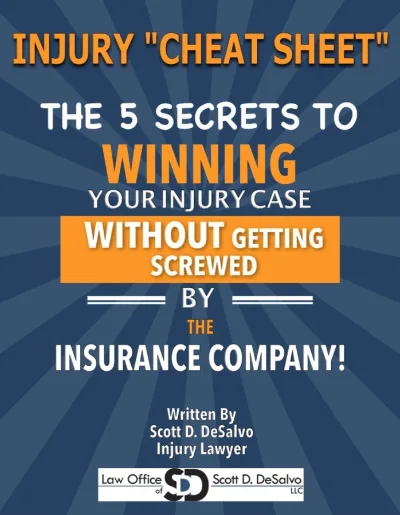

Scott DeSalvo founded DeSalvo Law to help injured people throughout Chicago and surrounding suburbs. Licensed to practice law in Illinois since 1998, IARDC #6244452, Scott has represented over 3,000 clients in personal injury, workers compensation, and accident cases.
No Fee Unless You Win | Free Consultation | 24/7 Availability Call or Text: (312) 500-4500
>>Read More
Main Office:
1000 Jorie Blvd Ste 204
Oak Brook, IL 60523
New Cases: 312-500-4500
Office: 312-895-0545
Fax: 866-629-1817
service@desalvolaw.com
Chicago and Other Suburban Offices
By Appointment Only